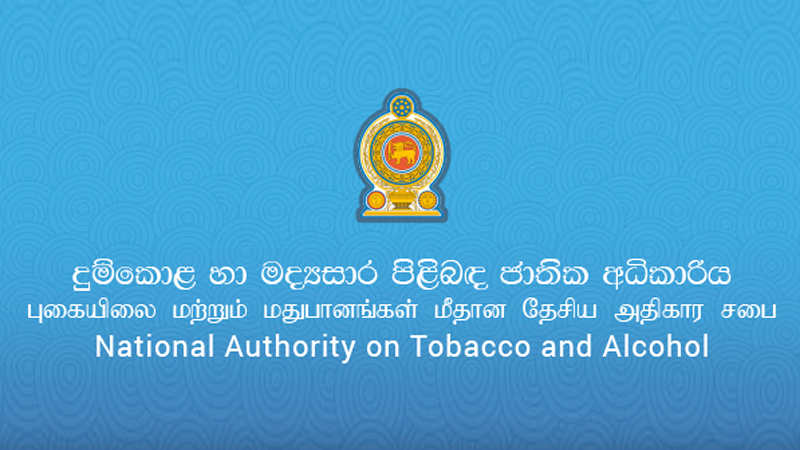1. Case Background
Court of Appeal Case: CA/PHC/APN/0086/2023
Petitioner: D.S. Gunasekara (Pvt) Ltd
Respondents:
- R.A. Prageeth Jaliya Jayathilake (Authorized Officer under the National Authority on Tobacco and Alcohol Act)
- Hon. Attorney General
Accused-Respondent: Ceylon Tobacco Company PLC
Court: Court of Appeal of the Democratic Socialist Republic of Sri Lanka
Nature of Application: Revision under Article 138 of the Constitution
Core Issue: The petitioner sought to challenge the decisions of the Magistrate’s Court of Anuradhapura and the Provincial High Court, which refused the application to withdraw charges filed under the National Authority on Tobacco and Alcohol (NATA) Act.
2. Procedural History
- Initial Charges:
- The petitioner and Ceylon Tobacco Company PLC were charged under Section 34 of the NATA Act for failing to display pictorial warnings on large cardboard boxes used to transport cigarette packets.
- Court Proceedings:
- The Court of Appeal had earlier clarified ambiguities in the NATA Act’s Sinhala and English texts, determining that such warnings were indeed required on transportation boxes.
- Following this judgment, the accused took corrective actions to comply with the requirements.
- Attorney General’s Application:
- The Hon. Attorney General sought to withdraw the charges under Section 189 of the Criminal Procedure Code, citing the technical nature of the violation and the corrective measures taken.
- The Magistrate’s Court of Anuradhapura rejected this application, deciding to proceed with the case.
- Subsequent Appeals:
- The Provincial High Court upheld the Magistrate’s decision.
- The petitioner filed the present revision application with the Court of Appeal.
3. Key Legal Issues
- Interpretation of the NATA Act:
- Did the petitioner’s actions constitute a violation of Section 34, and was the ambiguity between the Sinhala and English texts a valid defense?
- Withdrawal of Charges:
- Should the Magistrate have permitted the withdrawal of charges, considering the Attorney General’s discretion and the corrective measures taken by the accused?
- Exceptional Circumstances for Revision:
- Did the case present sufficient grounds for the Court of Appeal to exercise its revisionary jurisdiction?
4. Court’s Analysis
- Ambiguity in the NATA Act:
- The Court recognized the ambiguity in the English translation of the Act, which referred to “cartons” as opposed to the broader term used in the Sinhala version. This ambiguity justified the initial misunderstanding by the accused.
- The Court of Appeal had clarified this ambiguity in a prior judgment, after which the accused complied with the requirements.
- Prosecutorial Discretion:
- The Hon. Attorney General’s decision to withdraw the charges was deemed reasonable, given the technical nature of the violation and the lack of intentional non-compliance.
- The Court emphasized the role of prosecutorial discretion in addressing cases where strict enforcement of the law might lead to disproportionate outcomes.
- Exceptional Circumstances:
- The Court determined that the Magistrate and High Court had failed to appropriately consider the Attorney General’s application and the corrective actions taken by the accused.
- The petitioner established sufficient exceptional grounds for the Court of Appeal to intervene, as the continued prosecution would amount to a miscarriage of justice.
5. Judgment
- Outcome: The Court of Appeal allowed the revision application, setting aside the orders of the Magistrate’s Court and the Provincial High Court.
- Reasoning:
- The Court found that the accused’s actions were based on a legitimate misinterpretation of the law.
- The corrective measures taken after the clarification of the law demonstrated good faith.
- The decision to withdraw charges was justified, and the continued prosecution was unnecessary.
- Directions: The Court directed the Registrar to communicate the judgment to the relevant courts for compliance.
6. Implications
- For Legal Interpretation:
- Emphasizes the importance of addressing ambiguities in legislative texts to prevent undue hardship.
- Reiterates the authority of Sinhala text as the official version of Sri Lankan legislation.
- For Prosecutorial Discretion:
- Validates the Attorney General’s role in using discretion to prevent disproportionate enforcement of laws.
- For Judicial Precedents:
- Clarifies the exceptional circumstances under which revisionary jurisdiction may be exercised.
- Reinforces the principle that corrective actions taken in good faith can mitigate liability.
7. Conclusion
The judgment highlights the balance between strict legal enforcement and equitable justice. By allowing the withdrawal of charges, the Court recognized the petitioner’s good faith efforts to comply with the clarified law and prevented unnecessary prosecution. This case serves as a precedent for addressing ambiguities in legislative interpretation and the prudent exercise of prosecutorial discretion.
Read Full Judgment














